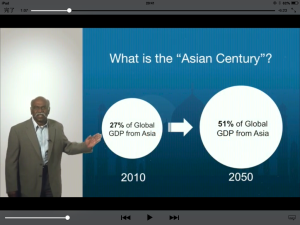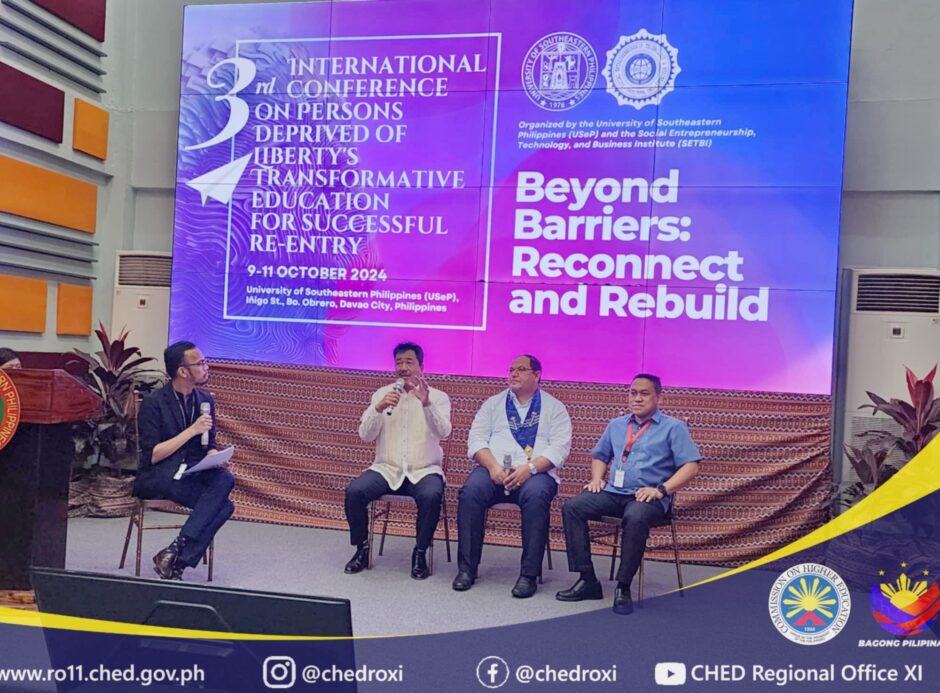 While the Asian countries are enjoying unprecedented economic growth, the West is struggling with debt, immigration crises, declining influence, and political disability. In recent years, the West has declined relative to Asia. With the shift in power from the West to the East, we have been witnessing the decline of the West for a long time, so that it is almost sure that America and Europe will no longer be the world’s largest economic, political, social, cultural and military forces. I think we are witnessing the beginning of the decline of the West and America, the America that as the nation that exercises its leadership around the world. The Asian century is upon us, with great powerhouses such as China, India, and Indonesia well under way. According to Professor Mahubani, a former diplomat and dean of the Lee Kuan Yew School of Public Policy, which is a postgraduate school at the National University of Singapore, “for more than 1800 of the last 2000 years, China and India have been the two largest economies in the world. The past 200 years have been a major historical aberration,” Professor Mahubani said. According to Asian Development Bank, Asia will have a 51 percent share of the global economy, next to 18 percent for Europe and 15 percent for America. This means Asia has become stronger and America and the West weaker. Scholars predict that China has the potential to surpass the US economy by 2030 to become the world’s largest economy and India to become the second largest economy. America‘s world is shrinking. The biggest economy in the world also has the heaviest debt in the world.
While the Asian countries are enjoying unprecedented economic growth, the West is struggling with debt, immigration crises, declining influence, and political disability. In recent years, the West has declined relative to Asia. With the shift in power from the West to the East, we have been witnessing the decline of the West for a long time, so that it is almost sure that America and Europe will no longer be the world’s largest economic, political, social, cultural and military forces. I think we are witnessing the beginning of the decline of the West and America, the America that as the nation that exercises its leadership around the world. The Asian century is upon us, with great powerhouses such as China, India, and Indonesia well under way. According to Professor Mahubani, a former diplomat and dean of the Lee Kuan Yew School of Public Policy, which is a postgraduate school at the National University of Singapore, “for more than 1800 of the last 2000 years, China and India have been the two largest economies in the world. The past 200 years have been a major historical aberration,” Professor Mahubani said. According to Asian Development Bank, Asia will have a 51 percent share of the global economy, next to 18 percent for Europe and 15 percent for America. This means Asia has become stronger and America and the West weaker. Scholars predict that China has the potential to surpass the US economy by 2030 to become the world’s largest economy and India to become the second largest economy. America‘s world is shrinking. The biggest economy in the world also has the heaviest debt in the world.
What we are witnessing is a global rebalancing, and the Asian society is becoming more like the West, but Western society is no longer as it used to be, especially with the current immigration problem, unemployment, rising racism, and even the disintegration of the European Union. However, tensions in the South China Sea among China, the Philippines, Vietnam, and Malaysia with all having competing claims could slow down the Asian century’s progress. The competition between China and the United States is one of the most important geopolitical issues facing American leadership. It is not in the Chinese national interest to go to war with Philippine, Vietnam, or any other of its neighbors because if there is a major conflict in the region, that will be a great geopolitical gift to America. President Duterte is aware that it is in the national interest of China not to have a conflict in the South China Sea. If the Philippines want to become a global city, it has to maintain and implement its rule of law and be open for the world to come to it; then, if the Philippines can achieve these goals, great times are ahead.
From the beginning of the 18th century until World War II, it was Europe that guided Western countries to the position of global dominance. For centuries, only twenty or thirty percentage of the world population, which was the West and United States, ruled the world and designed the world for their interests, but now the world’s biggest population is in Asia, and development is taking place in Asia for its interest, but also problems are in Asia too. If Asian countries sort out their problems peacefully without any external help, they will catapult forward. However, issues such as border dispute remain a big problem in India’s throat, as is China’s close relationship with Pakistan. China remains suspicious of the Dalai Lama, and Pakistan is suspicious of India. The West or the United States may use the world most populous democracy, India, against China, if indeed America has any influence over India. If China and India compete with each other, that is good for America. If the Asian countries solve these issues among themselves the way that President Duterte is doing now, they will advance their interests. After World War II, the United States took the leadership role; yet, today Europe’s economies are faced with slow growth and an inability to influence global outcome from the Ukraine to Syria and from Turkey’s immigration crisis to the South China Sea.
The American-led global order is in crisis. After the World War, the United States and the West built a distinctive type of global order. It was organized in a the way that would benefit their national interests, as all nations do in their foreign policy, from the establishment of the United Nations, the International Monetary Fund, the Law of Sea, Trade, the General Agreement of Tariffs, the World Bank, and several other institutions and security alliances were also established to protect these interests. It is true that by implementing the Marshall Plan, the US rebuilt the post-Nazi Germany that had invaded most of the European continent and committed genocide, and it is equally true that after the Japanese attack on Pearl Harbor that drew the US into the war, the US kick-started a devastated Japan to lead it to the second strongest economy in the 1980s. To a degree, however, the US has lost its moral force for good in the world in terms of the economy and politics.
Today‘s struggle is about voice. It is about who sits at the table, how to reorganize the world order and the platforms of authority, and what the new order political hierarchy of the countries should look like. It is not about human rights or the suffering of millions of people living in poverty and violence. In the struggles from the Middle East to Africa and from Europe to Asia, the major powers are seeking a greater voice in existing multilateral institutions. America was privileged to have democracy, prosperity and freedoms guaranteed by its carefully crafted Bill of Rights. American founding father Thomas Jefferson wondered, “Yes, we did produce a nearly good republic. But will they keep it? Or will they, in the enjoyment of plenty, lose the memory of freedom? Material abundance without character is the path of destruction.”
Public corruption has been a serious problem and a fundamental threat to America security and its way of life. It includes bribery, witness tampering, illegal kickbacks, extortion, fraud, and conspiracy, and abstraction of justice, perhaps not to the degree of many nations, as Transparency International will verify. Nevertheless, President Obama put America on sale allowing his interests to destroy American credibility and putting Russia and Iran in charge of global affairs. The demand for global leadership has never been greater, but it seems we do not have any leader who could solve our current global problem. The quagmire of Donald Trump and Hillary Clinton who surged to their parties’ tickets exemplifies that the American people have lost faith in their political establishment. In theory, America has a government of the people, by the people, and for the people. But in practice, it has a government chosen by the people to serve to a large degree special interests, not the interests of the people.
If America has been successful in using democracy as a weapon, now India is the biggest democracy in the world. India is against the rise of China, and it may slow down the economy of two powerhouses, and then this will help America. It is not surprising that President Rodrigo Duterte is seeking billions of dollars in infrastructure investment from China in the coming months as he seeks to alter its relationship with the United States. President Duterte is playing a high stakes game with global superpowers, because much of Duterte‘s annoyance with the United States is not about larger issues; it is more of a personal hatred, a lack of trust, and a refusal to respect the long-time ally. For example, he holds on to the way America handled the 2002 bomb blast in a Davao City hotel in which a mysterious American, whose legs were amputated after the blast, was suspect in the explosion. When the man disappeared from the hospital and was returned to the US, even though both FBI and CIA agents categorically deny any involvement, this Meiring case caused Duterte to lose trust in America‘s intensions in the region and its respect for the rule of law. So Duterte sees it as a double standard when President Obama or another administration asks Duterte to obey the rule of law and to support human rights. Instead, the American government should reiterate to Duterte a credible and honest explanation of what happened in light of all the conspiracy theories.
American foreign policy is still based on Cold War policy and does not serve the American interests. President Duterte is aware of all the trends pointing towards a new golden era for the region. To understand their own futures, Asians must believe in themselves and develop new friendships and allies that develop new, more positive global narratives than the West and the United States narratives.
Dr. Aland Mizell is President of the MCI and a regular contributor to Mindanao Times. You may email the author at:aland_mizell2@hotmail.com

